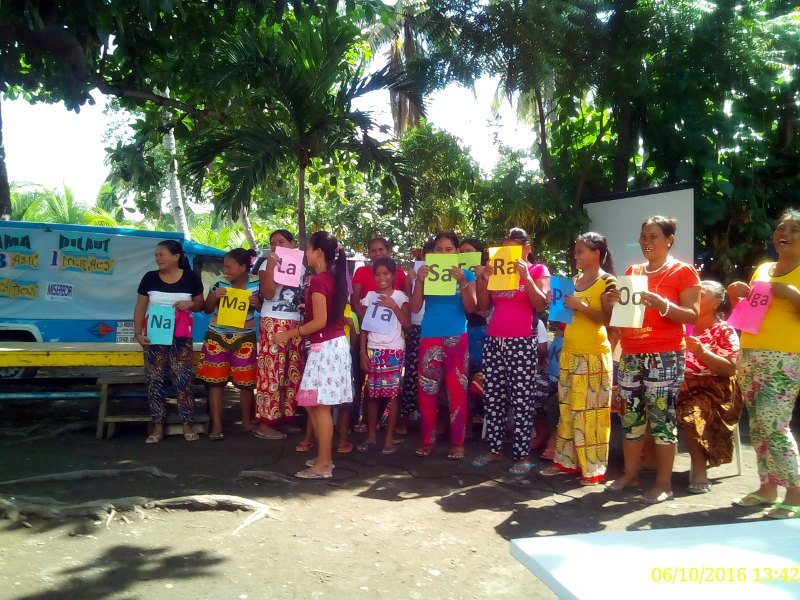
16 Badjao students graduates from ABLE project
Graduation Day is always laudable. But what if the graduate only learns to read two (2) syllable words or knows basic mathematical operations? Perhaps where education is easily accessible, it doesn’t matter much. Yet for the sixteen adult females of the Sama Dilaut (Badjao) Community in Dapsa-Bucana, Brgy. 76-A, Davao City, who graduated from the Adult Basic Literacy Program (ABLE), it is an achievement.
“Nalipay (happy),” Salamat Coting gladly shares her feelings about her graduation. She has 6 grandchildren and she looks forward to having them attend the same program and their eventual integration to the mainstream schools.
Relatively negligible their achievement appears, it is a good start. Easy prey to unscrupulous customers, Badjao “ukay-ukay” sellers lost because they do not know how to read and count. What they have learned so far are just very basic but promising.
The Badjao Community is part of the non-government organization Mindanao Land Acquisition, Housing and Development Foundation’s larger Scaling-Up Governance and Resiliency (SUGAR) Project. Its funding sponsor is MISEREOR, a group composed of the German Catholic Bishops.
According to Ria Tumlad, the Adult Basic Literacy Education Project was introduced to facilitate the disaster preparedness skills program for this community that lives near the mouth of the Davao River. The literacy needs of the recipients top priority concern. Compounding the problem at its initial stage was the community leaders’ reservation because of previous experience where they were accordingly taken advantage of as well as the attitude that they have survived this long without education. The NGO’s persistence, however, eventually yielded a positive response.
The first batch composed of 12 male participants were heads of families. Enlisting them first help facilitate the entry of their wives in the next batch. Only 6, however, graduated from the first batch; the drop-outs found learning just too difficult. Four of them assisted the teacher in mentoring her students. Their next learning program will focus on basic hygiene. The local government unit also gives support and the Alternative Learning System of the Department of Education to teach them livelihood skills.
Appreciative of their newly gained skills, the graduates hope that the government will help secure birth certificates for their children to enable them to study in public schools. Empowering them is indeed a collaborative effort by all. Pope Francis’ invitation, “Walk the talk,” is an inspiration for Ria Tumlad, the NGO worker. Perhaps in one way or another we too can respond to the same by accompanying marginalized groups in their search for a better life.



No Comments